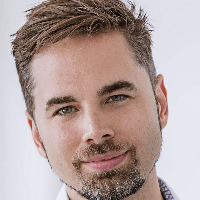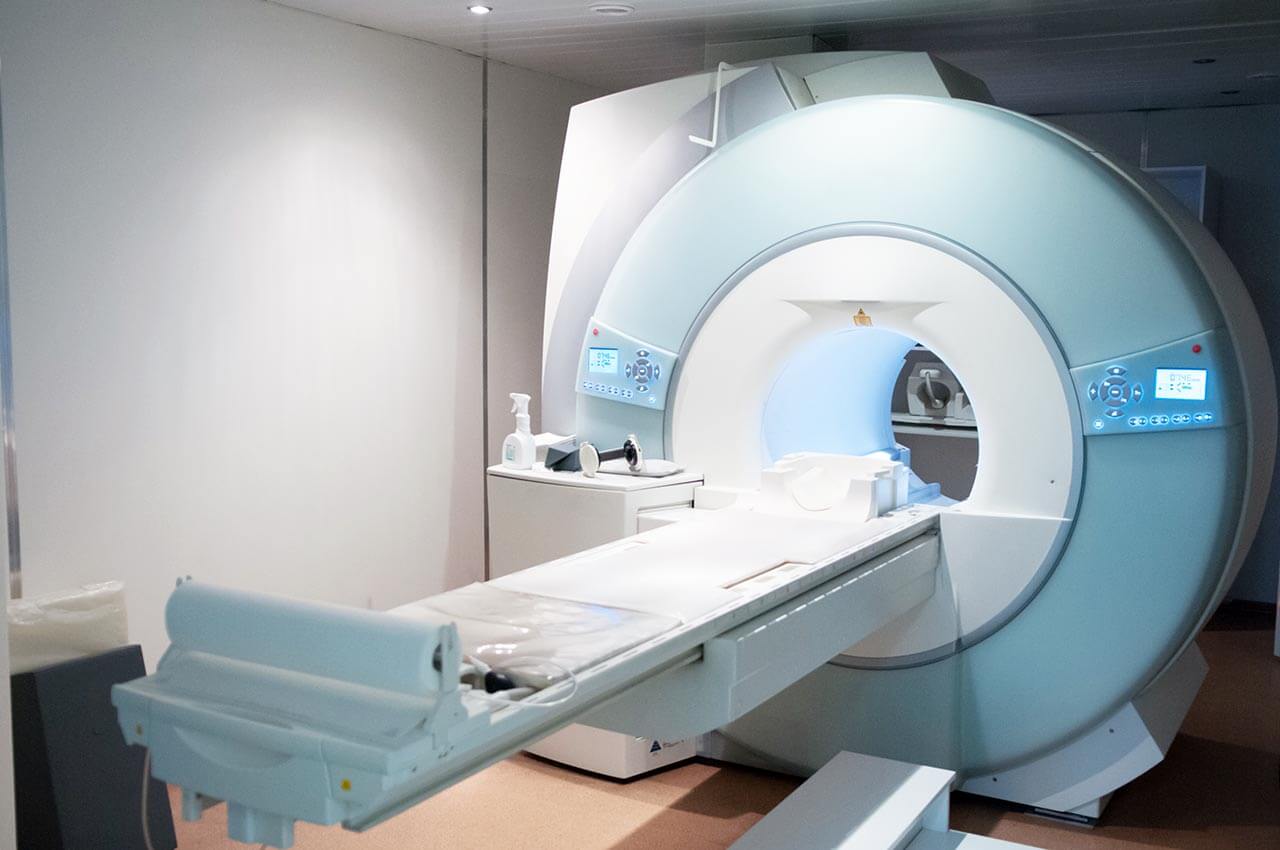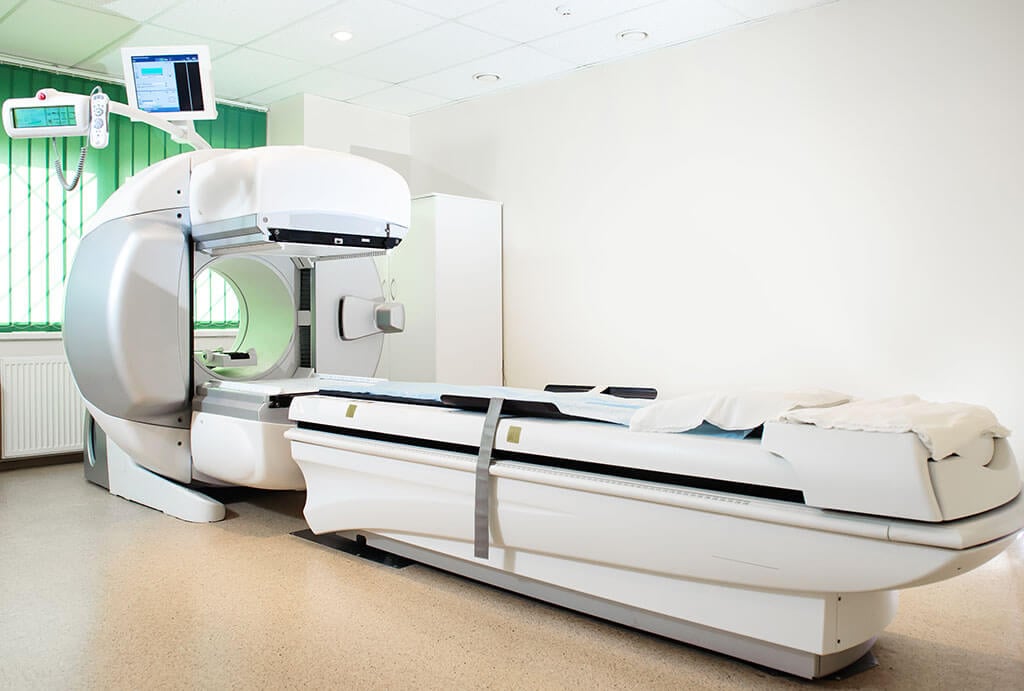
The program includes:
- Initial presentation in the clinic
- clinical history taking
- review of medical records
- physical examination
- urological examination
- laboratory tests:
- complete blood count
- clinical urine test and urine culture
- inflammation indicators (CRP, ESR)
- indicators of blood coagulation
- pelvic ultrasound
- MRI scan (on indication 1200 €)
- nursing services
- consultation of related specialists
- consultation of the chief physician and all leading experts
- development of individual treatment plan
- written statement
Required documents
- Medical records
- Scrotal ultrasound (if available)
Service
You may also book:
 BookingHealth Price from:
BookingHealth Price from:
About the department
The Department of Adult and Pediatric Urology, Andrology at the DKD HELIOS Clinic Wiesbaden offers the full range of services for the diagnostics and treatment of diseases of the urinary system in men and women, pathologies of the male genitalia, as well as male infertility, erectile dysfunction and endocrine disorders of the male reproductive system. The key focus is on the treatment of prostate, kidney and bladder cancers. The department specializes in endoscopic urological surgery. In addition, the department provides effective treatment of urological diseases in children. Depending on the complexity of the clinical case, the treatment can be either inpatient or outpatient. All diagnostic and therapeutic procedures are performed in accordance with modern clinical protocols and current recommendations of the professional societies. Special attention should be given to the high professionalism of the department's urologists who competently use progressive therapeutic methods for the treatment of especially complex pathologies, thanks to which patients have an opportunity to restore their health and live a full life. The department is headed by Dr. med. Mario Domeyer.
The focus of the department's urologists is on the patients with prostate cancer. This disease is one of the most common in clinical practice of the specialists. The standard diagnostic protocol for confirming the diagnosis includes palpation and transrectal ultrasound examination, as well as determination of the PSA levels in the blood. Magnetic resonance imaging and biopsy are often required to obtain a complete clinical picture. In most cases, the treatment of prostate cancer involves a surgical removal of the tumor, while at the advanced stages of oncology – radical removal of the prostate. Whenever possible, doctors perform surgery using sparing minimally invasive techniques. In most cases, surgery is combined with chemotherapy and/or radiation therapy.
The department's medical team also provides diagnostics and modern treatment of testicular, kidney and bladder cancers. The treatment regimen is developed for each patient individually. The main treatment method is mostly surgical resection of the tumor. To completely destroy cancer cells, chemotherapy, radiation therapy and other conservative methods are additionally used. The department's urologists prefer sparing and organ-preserving surgical interventions.
In the field of andrology, the main focus is on the detection of the causes of male infertility and their elimination, as well as on the treatment of erectile dysfunction, diagnostics and treatment of hormonal disorders in men.
An integral part of the clinical activities of the specialists is the diagnostics and treatment of urological pathologies in children. The diagnostic options in the field of pediatric urology include high-resolution ultrasound, Doppler sonography, digital X-ray examination and endoscopic procedures. The department provides both conservative and surgical treatment. The specialists of a medical facility mostly admit young patients with phimosis, undescended testicles, hypospadias, enuresis and recurrent infectious diseases of the genitourinary system.
The department's range of medical services includes:
- Diagnostics and treatment of urologic cancers
- Prostate cancer
- Drug therapy
- Surgical resection of the tumor (organ-preserving, laparoscopic and radical interventions)
- Testicular cancer
- Drug therapy
- Surgical resection of the tumor (organ-preserving, laparoscopic and radical interventions)
- Kidney cancer
- Drug therapy
- Surgical resection of the tumor (organ-preserving, laparoscopic and radical interventions)
- Bladder cancer
- Drug therapy
- Surgical resection of the tumor (organ-preserving, laparoscopic and radical interventions)
- Formation of a new bladder (for example, from iliac tissue)
- Prostate cancer
- Diagnostics and treatment of benign prostatic hyperplasia
- Drug therapy
- Monopolar and bipolar transurethral resection of the prostate
- Laser treatment (Greenlight laser)
- Diagnostics and treatment of kidney stone disease
- Shock wave lithotripsy
- Ureteroscopy
- Endoscopic and laser stone removal
- Percutaneous nephrolitholapaxy
- Diagnostics and treatment of urinary incontinence
- Drug therapy
- Endoscopic Botox injections into the bladder sphincter through the urethra
- Minimally invasive interventions
- Artificial urinary sphincter implantation
- Diagnostics and treatment of andrological diseases
- Treatment of erectile dysfunction
- Treatment of infertility
- Treatment of hormonal disorders in men
- Vasectomy
- Diagnostics and treatment of urological diseases in children
- Drug therapy
- Diagnostics and therapeutic endoscopic interventions
- Reconstructive plastic surgery of the external reproductive organs
- Circumcision
- Other services
Photo of the doctor: (c) DKD Helios Klinik Wiesbaden
About hospital
The DKD HELIOS Clinic Wiesbaden has long made a name for itself in the international medical arena by introducing an optimal model of medical care, combining the use of the most advanced medical technologies, the experience of highly qualified doctors and impeccable quality of patient care. The medical facility first opened its doors to patients in 1970. The world famous Mayo Clinic Rochester in America served as a model for the design of the medical complex. Since the foundation of the clinic, the main direction of its activities has been comprehensive diagnostics of complex diseases integrated into an interdisciplinary treatment concept. Today, an integral part of clinical practice is also preventive diagnostics aimed at the early detection of pathological changes in the human body. In recent years, the clinic has been actively developing the direction of surgery, in which it has significantly succeeded. The clinic enjoys a reputation as one of the best medical facilities in Europe in the field of endocrine and colorectal surgery, as well as in hernia repair surgery.
The clinic has 24 specialized departments. Each of them offers a team of experienced doctors, whose main value is the patient's health. The work of all doctors of the medical facility is based on a single credo – "Treat not a disease, but a patient". According to this belief, the course of treatment should be as individual as possible, taking into account the patient's physical characteristics, lifestyle, diet, emotional state, etc.
The clinic's bed capacity consists of 138 inpatient beds and 60 beds in a day hospital. Many diagnostic and therapeutic procedures are performed on an outpatient basis. The diagnostic and treatment rooms, like the operating rooms of the clinic, are equipped with state-of-the-art technology to ensure the observance of strict hygiene and safety standards. The advanced medical equipment allows detecting the slightest changes in the functioning of organs and their structure with impeccable accuracy, thanks to which doctors can diagnose complex pathologies at the very early stages. This greatly increases the chances of a successful cure.
The location of the clinic in Wiesbaden, known as one of the oldest thermal spas in Europe, is another pleasant advantage for the patients. Arriving at the clinic for a preventive diagnostic examination, one can improve his health in the healing thermal springs, as well as enjoy the sightseeing of historical monuments. The medical center is located in the immediate vicinity of the English style Spa Park founded in the distant 1852, so in the free time from medical procedures one can take a pleasant walk in the beautiful park.
Photo: (с) depositphotos
Accommodation in hospital
Patients rooms
The patients of the DKD HELIOS Clinic Wiesbaden live in comfortable single and double rooms. Each patient room has an ensuite bathroom with shower and toilet. The standard patient room furnishings include an automatically adjustable bed, a bedside table, a table and chairs, a TV and a telephone.
The clinic also offers enhanced comfort rooms with spacious bathrooms, which additionally include a large mirror, hairdryer, changeable towels and toiletries. These patient rooms also have a safe for storing valuables, a free minibar with soft drinks, a flat-screen TV with satellite channels and free Wi-Fi.
Meals and Menus
The patients of the clinic are offered tasty and balanced three meals a day: breakfast, lunch and dinner. If for some reason you do not eat all the foods, you will be offered an individual menu. Please inform the medical staff about your dietary preferences prior to treatment.
The clinic also has a cozy cafe where one can taste delicious snacks, salads, main courses and desserts. One can also enjoy aromatic coffee, delicious tea and soft drinks in the cafe.
Further details
Standard rooms include:
Religion
The religious services are available upon request.
Accompanying person
During the inpatient program, the accompanying person can live with the patient in a patient room or a hotel of his choice. Our managers will help you choose the most suitable option.
Hotel
During the outpatient program, the patient can stay at the hotel of his choice. Our managers will help you choose the most suitable option.





